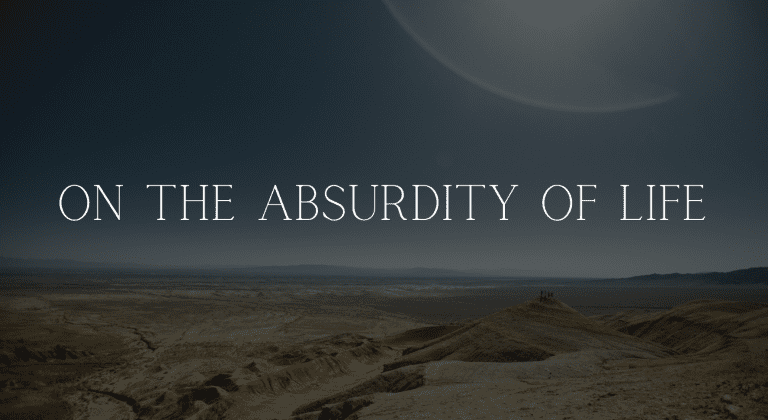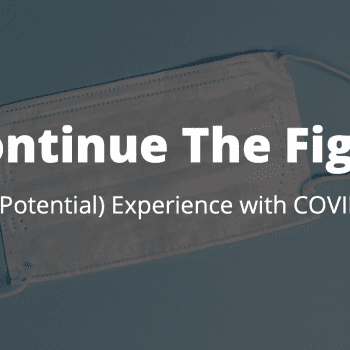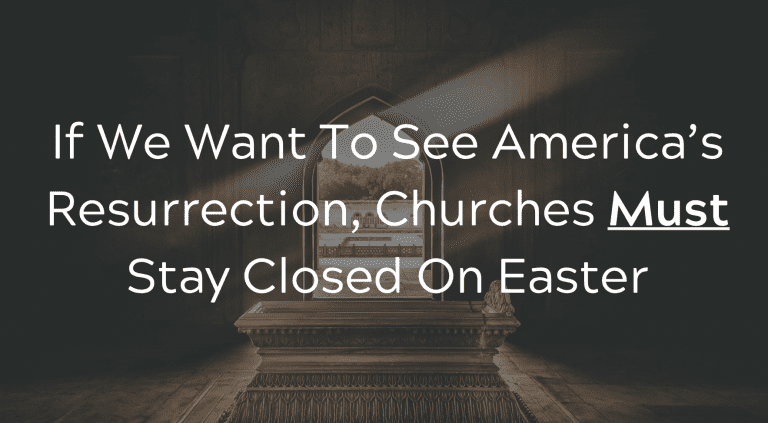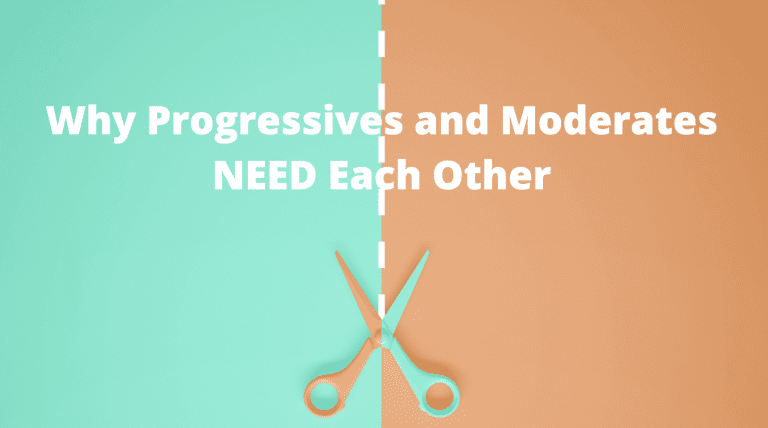During the Christmas season, we hear a lot of talk about “hope”.
Hope for a better day. Hope for a new life. Hope that good will overcome evil.
On the surface, this message seems to be one that should be celebrated and embraced. Thinking of what the birth of Jesus represents for our world and how, despite our circumstances, we can look towards a day of salvation and peace.
It seems to be a great message.
But recently, I’ve been thinking very differently about “hope”.
You see, I believe that far too often we get bogged down by hope.
We become too focused on some sort of future redemption, that we fail to take ownership, authority, and responsibility of our own lives and our own world.
In the early stages of our life and spiritual development, it makes sense to long for God to manifest in some supernatural way and make everything right in the world. That’s what so many of us were taught in Sunday School and I’m sure what so many of us believe, even now.
But as we grow in depth and experience, our perception of God is meant to move from some being out there, up in the sky, holding the strings of the universe and making all of the calls, to the realization of our own Divine nature, of our own potential to create and redeem our lives and our world.
This message permeates all of Christian Scripture, if we have eyes to see it. And it is especially emphasized in this season of the Christian Liturgical Calendar called “Advent”.
For thousands of years, Christians have set aside this time of the year to enter in to a season called “Advent”. In this season of Advent, which literally means “coming” or “arrival”, Christians are called to return back to the stories of waiting, of longing, and of exile that are contained in scripture. Called to intentionally enter in to a season of darkness, of fear, of longing for redemption, to feel what it is like to live in a world without Light, without God, and without hope.
Christians have practiced stepping in to this season every year for thousands of years because when we step into advent, we begin to, for a brief moment, remember why the message that Jesus embodied was so important, so needed, so liberating.
Advent calls Christians to stand in solidarity with the people of Israel who were forced out of their lands by the oppressive Egyptian Pharaoh, forced into slavery and bondage, and who believe that their only hope was to long for a deliverer, a liberator to be sent by their God in order to free them from their seemingly hopeless plight.
And Advent calls Christians beyond the stories contained in scripture, to stand in solidarity with all people who have ever been exiled, found themselves in darkness, found themselves victimized by injustice, weighed down and unable to experience the fullness of life because of the greed, hatred, fear, or selfishness of another.
Advent is this season of longing. It’s a season of darkness. And at the same time, Advent is a season of subversive resistance. Of radical, powerful, and active hope.
From time to time, we all find ourselves in seasons of life that we might consider “dark nights of the soul” as the Spanish mystic St. John of the Cross put it.
Seasons where we find ourselves weighed down by despair, by loss, or by fear. In these seasons, we feel that the Divine is far from us, that we are indeed just sojourners and nomads in a barren desert, and hope seems like a distant memory or a vain desire to far beyond our grasp.
In those moments, we are told that Christmas is a reminder that redemption is coming. That nothing has to remain as it is in these moments. That the Divine is still with us, permeating every molecule in every moment, and because of that, we know that light is not far off. Darkness can be dispelled. A new day can dawn.
This is what we’re taught that this season calls us into.
How many songs do we sing in this season that call us to think about some far off day when all will be made right at last?
Songs that call for us to long for the coming of the Kingdom in our world. They call for us, in the midst of a world infected by injustice and sin, to long for a world where all people are delivered from the evils and afflictions that bind us up, and to live fully, freely, and purely, as children of God.
It’s a really inspiring thought, isn’t it? The sort of hope that everything that we’ve messed up will be fixed and we’ll get to waltz in to this new reality. How nice.
But is that really the message of Advent? Is that really what the Gospel of Jesus is actually all about? Is any of this actually realistic? Is this the kind of hope that actually helps our lives and our world?
My fear is that for so many of us, Advent becomes a season of “lazy hopefulness”.
For so many of us, blinded by our privellege and blessing, advent becomes a time where we can sing of “hope” for God to send us “redemption”, which means getting us out of our discomfort or lack of all that hearts desire.
When we make advent a pithy religious season that precedes Christmas, a season of expectation of how many presents we might get or of how love will ultimately win, we miss the power of what this season is meant to communicate to us.
When we gloss over the real injustice, loss, pain, and darkness that exists in our world with the boisterous music of hope, we fail to live in reality. We become the annoying pie-in-the-sky religious people who actually have nothing to offer our world.
One of my favorite hymns in this season of Advent is “O Come O Come Emmanuel”, because I believe, in a very real sense, this song helps capture the true heart of what we’re supposed to be embracing in this season. You might know the lyrics:
“O Come, O Come Emmanuel, and ransom captive Israel, who mourns in lowly exile here, until the Sun of God appear. Rejoice! Rejoice! Emannuel shall come to you O Israel.”
You see, for so many of us, we rush to the “Rejoice!” and bypass the deep, heartfelt anguish this song is meant to communicate.
This is the song of a people who are yearning, crying, screaming for release, for redemption, for liberation.
“O Come! Come! Come! Ransom us from our captivity. Save us from this darkness. Redeem us from this dismal plight.”
This is a song meant to transport our souls through time to the people of Israel, wandering through the deserts of Egypt, without food or water, stricken by disease, made to be slaves, to conform to a society and culture that is opposed to who they are. We’re meant to feel the weight and anguish of their exile. We’re meant to feel the power of their longing for someone to rescue them.
This hymn that we sing calls us into radical solidarity with oppressed people- not just those from Bible stories of old, but the real oppressed people around our world who are in the midst of similar oppression. Who “mourn in exile” seeking, searching for a way to have a better life.
Yet, another part of me thinks that this song, and so much of the sentiment of this season completely misses the point.
You see, sometimes, hope is dangerous.
Because, as I mentioned earlier, hope can have the tendency to make us lazy. If this song is truly just the cry of a people looking to be redeemed by someone else from oppression, then it is a deeply depressing cry.
If the message of Advent is to just sit in our anguish and wait for God to deliver us, then advent is truly a farce of a season. It’s offensive. It’s utterly hopeless.
Because for a vast majority of oppressed peoples around the world, God doesn’t send a deliverer from on high. There never comes a reason to rejoice. Because there is no outside redeemer that magically appears to unshackle the chains of oppression. It just doesn’t happen.
Again, this is another misunderstanding of this season of Advent. A dangerous misunderstanding that only serves to perpetuate oppression and prolong exile.
What I find most compelling about this season of Advent, where I find the most light, and the most hope centers on this word, this idea of “Immanuel”.
This word “Immanuel” is often translated “God with us”, and it comes from a prophecy written by Isaiah in the Hebrew Bible. Isaiah rose up as a voice among the Jewish people who were facing injustice and oppression for generations. Speaking to them, he wrote in Isaiah 7:
“Therefore the Lord himself will give you a sign: The young woman will conceive and give birth to a son, and will call him Immanuel. He will be eating curds and honey when he knows enough to reject the wrong and choose the right, for before the boy knows enough to reject the wrong and choose the right, the land of the two kings you dread will be laid waste.”
When we read this passage by Isaiah, we’re forced to ask a pivotal question that almost never gets asked- what is the promise contained in these verses?
A woman gives birth to a child who is symbolically named “God with us”. He is promised to be a moral ruler, to choose right, reject wrong, and overturn the oppressors of the people of Israel.
Is this a promise of a “messiah” meant to come one day, thousands of years later, and liberate the people of Israel from their oppression?
Is this meant to be a call for lazy hope, for the people to continue in their oppression, praying and waiting for some redeemer to come from God sometime off in the distant future?
Is that what Isaiah is getting at? Is this what is really meant?
For a majority of Christians throughout history, this has been the interpretation, and it has led to complacency and the perpetuating of injustice.
But what if Isaiah was getting at something different? What if Jesus, who was supposed to be the “fulfillment” of this prophecy, also taught us that this was getting at something different?
After all, while Christians and even the Gospel writers did their best to construct stories to make Jesus fit every aspect of this prophecy- virgin born, with two comings, so that one day he would actually come back and liberate Israel from literal oppression, since he didn’t do that the first time.
Maybe Jesus didn’t come with force to liberate his people from injustice like they thought for a reason. Maybe, just maybe, we missed the point.
What if the word Immanuel is better translated, “God is with us”. Or even more scandalously, “God is in us.”
Or perhaps even more astonishingly “God is us”?
What if the message of advent isn’t about waiting for redemption to draw nigh, but to recognize that we are that redemption. That we are incarnations of the Divine, filled with power, potential, and creativity that can allow us to overturn every injustice, resist every evil, and bring about love and light in our world?
What if that’s what Isiaiah was getting at? What if that is why Jesus never seemed to care much about marching in to Jerusalem on a white horse to destroy the opressors of Israel. What if his message was you have the power to do that.
God is in you. Through you. As you.
What if Jesus was meant to be the embodiment of who we are meant to be, of who we already are.
Incarnations of the Divine.
What if we are who we’ve been waiting for. What if this is the point of this season?
What if Advent is truly the season where we slow down, where we contemplate reality- not our sugar coated, religious vision of reality, but the world and our lives as they truly are.
We are in an unprecedented moment of American and world history. A moment where so much of the social progress for the common good that we have been seeing emerge over the past few decades are being seriously threatened.
We are living in a time where blatant racism, discrimination, homophobia, xenophobia, and abuse has been legitimized by some of the most powerful leaders- not only in our own nation, but around the world.
Where equality, justice, and civil rights are being threatened by leaders who desire to take our world back to an era where people like them sat at the top of the social, political, and spiritual hierarchy at the expense of everyone who was not like them.
Not to mention the lack of quality healthcare, housing, and food available to so many people around our world.
We are living in a world that is bursting forth with beauty and light, but also a world that is plagued by greed, injustice, and darkness. Advent calls us to wake up to this reality. To stand in solidarity with the marginalized and disadvantaged.
But it also calls us to awaken to the reality of who we really are. Awaken to the light within ourselves. The Christ within us, born in our hearts, who empowers us to be agents of radical redemption in our world.
What if this is the message of advent, of Christmas, of the Gospel, of our lives.
What if the message that we’re supposed to take with us along our journey, that we’re supposed to awaken to, is that our redemption doesn’t come from somewhere out there in the universe, or up there in the sky?
That we don’t need a magical messiah to ride in on a white horse to vanquish the forces of darkness in our world?
That instead, our own choices and actions really do construct our reality.
That our circumstances do not determine our outcome, but that we have the power to determine it.
What if the message of Advent is that the darkness that exists, exists because we are experiencing amnesia about who we are and what we’re capable of?
What if the message of Christmas is that born in our own hearts, our own souls, is the light of the world, a creative power that is able to create the abundant lives of shalom that we’ve always dreamed of?
What if we don’t have to wait for redemption to come, but can experience it here and now, today, and everyday?
What if?
I believe that this is the season for us to take time, to slow down, and to contemplate ourselves and the world around us.
For us to perceive the presence of the Divine in all things. The untapped beauty that surrounds us and penetrates our very being.
This is a season to be reminded that our hope is not to be fixed on some event way off in the distance when someone will finally show up on the scene and make everything right, but that through one subversive act of love at a time, we can set the world to rights.
The rejoicing comes because our redemption isn’t far off- it’s here, it’s now.
It’s in us, through us, and for us.
We are what we’ve been waiting for.
This is the season where we disconnect, become aware of reality, recover a vision for our lives and our world as it is meant to be, and to move forward, energized by the great gift that we have been given as human beings- we are partakers in the Divine nature, co-creators, and powerful embodiments of God in our world.
This is a season of deep reflection about who we are and how we will live our lives.
Will we slip back into unawareness and let our lives continue as they have been? Will we close our eyes yet again to the injustices that we are perpetuating or that are happening right before our eyes? Or will we make one choice to do one action, take one step, to bring about change.
To overturn injustice.
To manifest the love of God.
To make visible the invisible Kingdom of God.
One action. One choice. One decision.
Then, after that, we make another decision. Take another step. Shine our ray of light once more.
It’s often so undramatic. It may feel so anticlimactic.
But as we make these choices and take these steps, things really do begin to transform before our eyes.
Our lives begin to take a new shape. Our world begins to run just a little more justly.
That’s literally it. That’s the gift that Jesus came to bring to us. The path that will lead to the transformation of your life. The redemption of the world.
Awareness that leads to action.
Choosing how we act. How we think. How we see.
Could this be the message of advent?
As spiritual teacher Marianne Williamson writes:
“According to the mystical tradition, Christ is born into the world through each of us. As we make our hearts true conduits for love, and our minds true conduits for higher thoughts, then absolutely a divine birth takes place. Who we’re capable of being emerges into the world, and weaknesses of the former self begin to fade. Thus are the spiritual mysteries of the universe, the constant process of dying to who we used to be as we actualize our divine potential.
We make moment-by-moment decisions what kind of people to be — whether to be someone who blesses, or who blames; someone who obsesses about past and future, or who dwells fully in the present; someone who whines about problems, or who creates solutions.
Such choices are made in every moment, consciously or unconsciously, throughout the year. But this is the season when we consider the possibility that we could achieve a higher state of consciousness, not just sometimes but all the time. We consider that there has been one — and the mystical tradition says there have also been others — who so embodied his own divine spark that he is now as an elder brother to us, assigned the task of helping the rest of us do the same.”
The Bible says that Christ was the firstborn among many siblings. That he is in us and we are in him, that we are One with God and are the Lights of the world.
We are what we’ve been waiting for.
Our redemption, our salvation, our hope comes from within ourselves.
And when we awaken and chose to embody this Divine energy together, there is nothing that can stop the creative flow that comes from us collectively.
This is what the journey of life is about, I am convinced.
Awareness, Presence, and Intentionality. Making bold choices, taking big steps, taking responsibility for ourselves and our world.
This message is embedded in the heart of advent- that Emmauel- God is with us, in us, as us.
Think about it.
Israel’s hope when they were in exile in the Sinai Desert wasn’t some savior who was going to come and kick Pharaoh’s ass- even though that’s how the myth portrays part of the story.
Instead, it was through awakening to the God within them, there own power to take control of their situation and to literally shape their own destiny.
Moses awakens to his God-identity and steps up. He takes charge. And He changes the world.
This is the story of every major figure in the Bible.
We have been trained to attribute it all to some external force that we call God.
But what if we can attribute it to the reality that God is within every single person- Abraham, Moses, Esther, Ruth, David, Solomon- like us, and that these people awakened to their own divine identity and potential?
What if this is Jesus story? That at his Baptism at the River Jordan, when he has the vision of the dove falling on him and a voice saying “You are my son with whom I am pleased”, he’s actually just awakening to his own power as God? He’s awakeing to who he always was.
Why does the new testament emphasize so much that we are the physical incarnation of Christ on the earth if that’s not literally true?
Because we are all one with Christ. We are partakers in Divine nature. Christ is within us and we are endowed with all the same power as Christ to do even better things than he did.
Those are his words, not mine.
What if this message is the reason for rejoicing this advent season?
God is truly with us. In us. As us.
We don’t need to embrace the same lazy hope that we have every other year. The hope that tells us that some day, Jesus himself is going to make it right and so we must just barel through the darkness, longing for someone to come and clean everything up.
No. We have real hope in advent because we are awakening to our true identity in Christ. That we have everything we need to live lives of peace and joy and goodwill.
We have everything we need to create that more beautiful world that our hearts long for.
We don’t need to wait.
We can experience that beauty and abundance today.
Through one subversive act of love at a time.
Isnt that good news?
When this becomes our perspective, this season changes. I believe it becomes all the more beautiful and powerful and poignant.
We take this time every year leading up to Christmas to contemplate our own captivity and the injustice in our world. To feel it. To see it as it is. And then we get to this celebration of Christmas, which is the day that marks the turning point of the Christian story- God becoming like us, entering into the darkness to bring light.
Except now, we realize, it’s not just in that baby in the manger that God has decided to become a human and bring light.
No, its far bigger and more radical than that.
As John writes in his first chapter of his Gospel:
“In God was light and that light was the life of all people, and that light shines in the darkness, and the darkness could not overpower it.”
In Jesus was light. But that light is the life of all people.
If you are alive, you have that light.
If you are alive, you are that light.
Christmas is the joyous celebration of our potential to bring about the redemption of the world.
To usher in the era that we’ve longed for.
That is a reason to celebrate.
For God is with us, in us, as us.
We are what we’ve been hoping for.
Joy to the world, the Lord has come, indeed.
In us. Through us. For us. As us.












